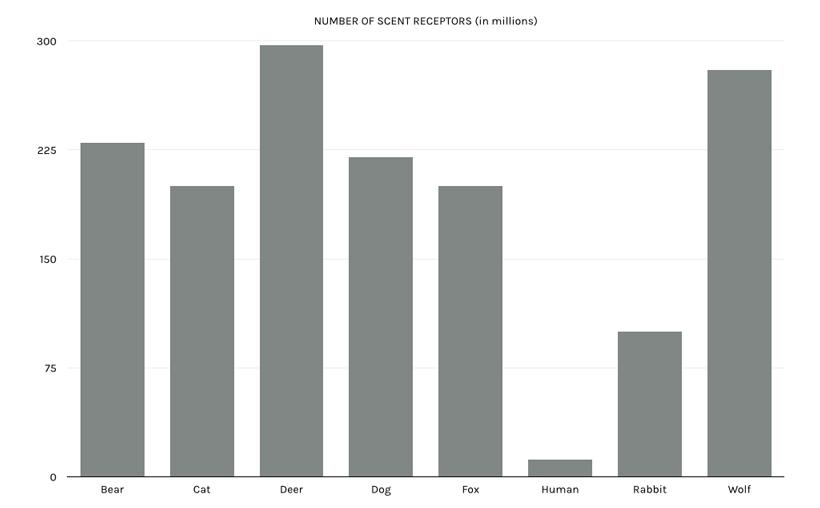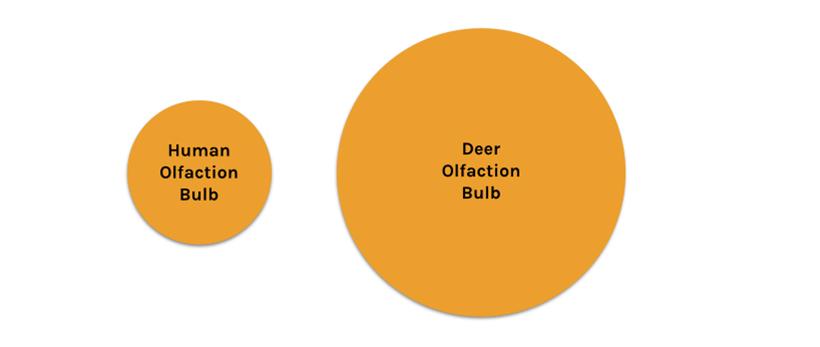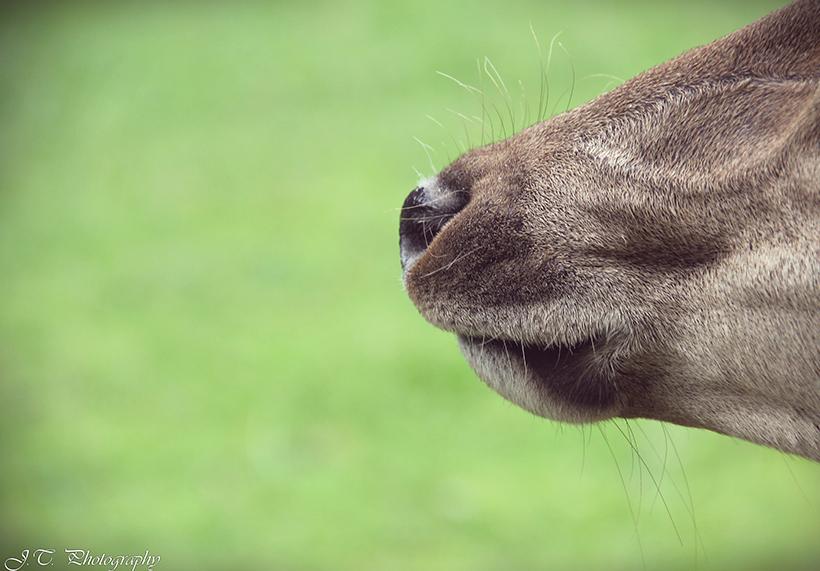





A deer’s olfactory bulbs weigh around 60 grams, which is about four times as much as human olfactory bulbs.

Photo Credit: Miss_Teryland
Humans depend much more on their visual capacity than their sense of smell for survival. Most prey species, like deer, depend on their noses. Deer have a highly developed sense of smell that is 100 times more powerful than a human’s. In fact, a deer’s nose is so sensitive that it can differentiate a particular scent from thousands of others at the same time. This keen sense of smell helps deer identify other deer, locate food sources and protect itself against approaching danger…which, of course, includes humans.
It is estimated that deer can determine the odor of danger approaching from several hundred yards away. How exactly are they capable of this apparent superpower? It all boils down to the design of their nose.
This means that a deer has about 60 times the smelling ability of a human in terms of nasal receptors alone. Yet this doesn’t even begin to touch upon the fact that deer are also better at processing the information that those receptors transmit to the brain. Once the odor particles are inhaled and dissolved into the nasal cavity, responses to the chemical action are executed by the sensory nerves to one of the two olfactory bulbs.
The olfactory bulbs then send electrical impulses to the deer’s brain stem, where the scent is classified. This is the same part of the brain that controls appetite, digestion, and emotions, which means the sense of smell is closely related to all three. Many biologists say that the olfactory center of a deer’s brain is 10,000 times more well developed than a human’s.
There is no doubt that the deer’s nose is a highly complex organ with incredible abilities. Of course, there are a number of variables that impact just how powerful a deer’s sense of smell may be. Wind, temperature and moisture are arguably the most important factors. But in the relative sense, deer are in an entirely different dimension than humans when it comes to their sense of smell. So now knowing this, it brings to mind the question of whether or not scent control and masking sprays actually work, or can the deer simply smell our human scent within the particles of the spray?